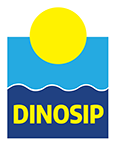| Diverse + Inclusive Naval Oceanographic (DINO) Summer Internship Program (SIP) | Information Sessions | Interns Experience Research At Sea | |||||
|
Application deadline: 1 March 2024 Questions? contact dinosip@uw.edu or check out the Questions/Answers at the bottom of this page. |
Want to learn more about DINO SIP? Amanda Labrado, STEM Development Program Coordinator, will host two ZOOM meetings to present information and answer questions. |

The first cohort of DINOSIP students gain hands-on experience with oceanographic technology and sampling methods on the R/V Rachel Carson. |
|||||
| Information | Requirements | |||
|
APL-UW conducts research in many fields: oceanography and polar science, ocean observations, ocean acoustics, software and environmental engineering, data analysis and signal processing, oceanographic sensors, and autonomous underwater vehicles. DINO internships are awarded to undergraduates who are currently registered at universities, community colleges, and technical schools. Graduating seniors are also eligible to apply. All projects are matched to the student's level of experience. By the start of the intership, students will need to have completed one year at their institution, have one term of pre-calculus (or equivalent), and have one term of a basic science or engineering course. Experience in a lab-based course or with computational software (like Excel, Matlab, Python, R, etc.) is helpful, but not required. Applicants may be studying any STEM field, but must have an interest in ocean sciences and other types of research conducted at APL-UW. Members of historically underrepresented groups — including, but not limited to African-, Hispanic- and Native-Americans, Pacific Islanders, first generation, LGBTQ+, military veterans and families, and disabled persons — in STEM fields are highly encouraged to apply. Falling short of prerequisites will not necessarily result in rejection, so all are encouraged to apply if this program is of great interest to you. |
The following documents are required and must be submitted through the application link: A current CV or resume that highlights educational background and work experience, course or project work, interests, community or service involvement, or other specialized skills Unofficial transcripts as record of courses (GPA will not be taken into consideration) A reference survey completed by an academic or professional reference who is familiar with the applicant’s academic and/or professional experience submitted via Qualtrics Short answers (500 word limit for each question) to the following:
|
|||
| Research Themes for Undergraduate Interns | APL-UW Departments: Expertise | |||
|
Air-Sea Interaction and Remote Sensing. Conducts research on the air-sea interface using a variety of remote sensing techniques. Interests include global scale processes of climate change and ocean circulation, regional studies of nearshore and coastal processes, and the small-scale physics of air-sea heat and gas exchange. Environmental and Information Systems. Investigators pursue three core research areas. (1) Acoustics and signal processing, (2) Environmental sensing and modeling, and (3) Information and control systems. Expertise is applied to the needs of the Department of Defense, other federal agencies, and industry. Electronics and Photonic Systems. Develops and builds state-of-the-art solutions to challenging problems faced by the U.S. Navy and provides engineering solutions for the installation and support of cabled ocean observatories. Acoustics Department. Studies the propagation and scattering of sound in the ocean. Its primary focus is to study the ocean and ocean structure using theory, numerical modeling, and field experiments. Ocean Engineering Department. Delivers science and technology solutions at sea. The department serves as a resource to scientists at APL-UW, other research and development organizations, and the U.S. Navy. Ocean Physics Department. Investigators pursue research focused primarily on small-scale and meso-scale oceanographic processes and design and build unique instruments to facilitate these studies. Polar Science Center. Conducts interdisciplinary research on the oceanography, climatology, meteorology, biology, and ecology of ice covered regions on Earth and elsewhere in the solar system. |
|||
| Questions? We have answers. | |
|
Do I need to be a U.S. citizen? Can this internship lead to other opportunities at APL-UW? Will my application be considered without my recommendation survey submitted at the same time as my application? What are you looking for in your applicants? If my background is in biology, will there be a project for me? If I'm transitioning from community college to university, am I eligible? Will I personally pay tuition for the seminar summer course? Where should we express our preferences and things we want you to know about us in the application? If I live in Seattle, do I need to live in the dorms provided? Do I have to complete the summer course at UW? What will day-to-day look like? What is the time commitment? Are we working toward a main goal at the end of the summer? Are there any preparations I should do before I begin my project? How many mentors are there, and how will I get my mentor? |
|






